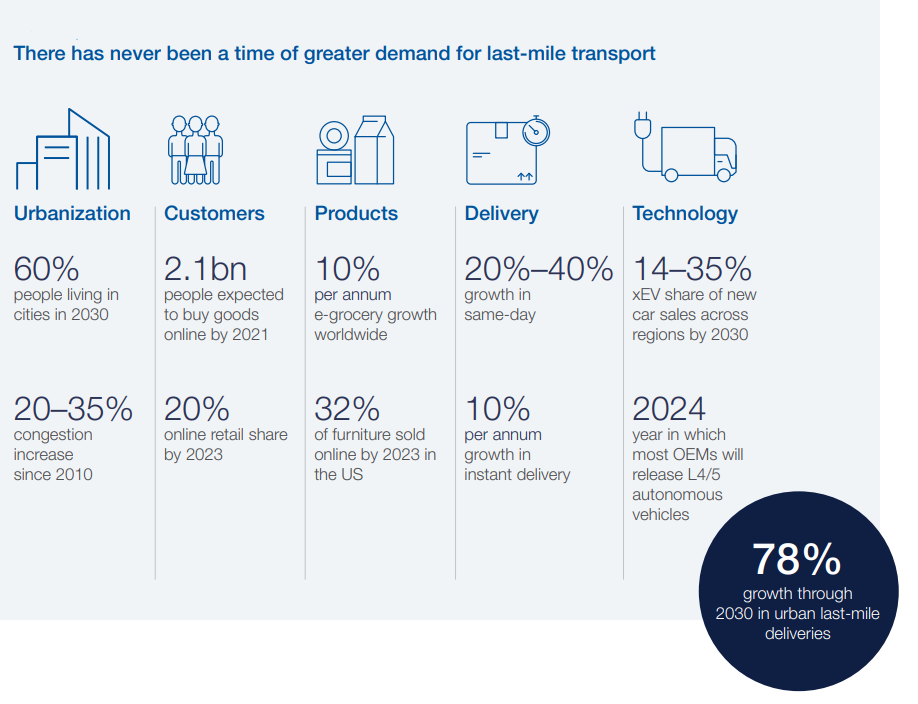Author: Carolina Grangeia and Vijay Saini, reviewed by: Tu-My Tran
Cover photo: Siemens
Transportation plays a vital role in the economy and its transition to zero-emission holds great promise. To attempt a clean transition, there is a need for a targeted approach to every function served by vehicles. As a deep dive into our previous CityTalk blog post on decarbonizing transportation, this blog post focuses on realizing the potential of renewable energy to empower sustainable urban freight.
Projections for the future of transport highlight that under the Current Ambition scenario, passenger activity’s carbon intensity is expected to decrease more rapidly than that of freight activities. This scenario reflects the potential impacts of existing commitments, including the Nationally Determined Contributions under the Paris Agreement.
Post-pandemic, this surge in delivery services is expected to pose a 32% projected increase in delivery-related traffic emissions until 2030. Although freight vehicles contribute significantly to traffic-related emissions (and considering the current scenario), a global shift to electric vehicles (EVs) has been recognized as a key solution for reducing emissions in the transport sector, improving air quality and logistics efficiency.





